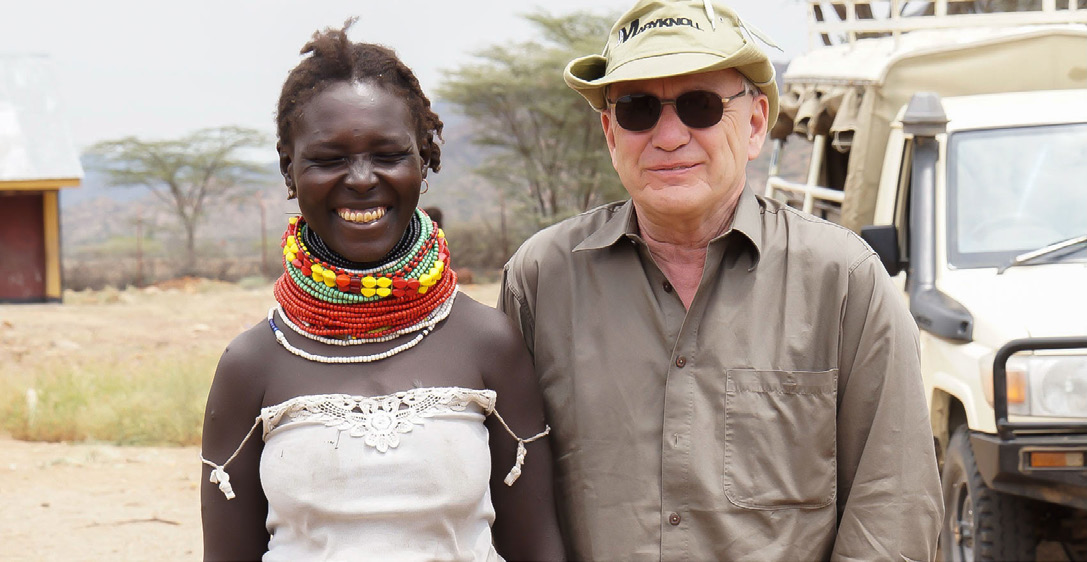“I shall cultivate the ground around it and fertilize it; it may bear fruit in the future.” - Luke 13: 8-9
In the Gospel for this third Sunday of Lent, Jesus speaks of the need for all people to repent of their sins. He tells a parable of a person who owns a fig tree that does not produce fruit for three years. When the man tries to cut it down, his gardener tells him to leave it for another year and carefully cultivate the soil as a final test to see if it can bear fruit.
In examining our lives and repenting for our sins and failings during Lent, we help cultivate the soil of our hearts so that the seeds of God’s love can bear fruit in our lives. Our daily practices and choices help us to remain spiritually healthy, otherwise we can become fruitless, like the fig tree.
As a person needs the practices of prayer and repentance to remain spiritually healthy, so likewise a society needs practices, institutions, and systems of justice to create a safe environment for all to flourish. Civil and political rights create safeguards to protect the freedom and dignity of all citizens, particularly the vulnerable.
Catholic social teaching affirms the need for a healthy political life to protect the rights of citizens so they can live freely and flourish. The Compendium of Catholic Social Doctrine states, “The demands of the common good … are strictly connected to respect for and the integral promotion of the person and [their] fundamental rights. These demands concern above all, [among others,] the commitment to peace, the organization of the State’s powers, a sound juridical system…”
One major threat to protecting the civil rights of all people is impunity for human rights violations, or a lack of accountability under law when human rights are flagrantly violated. When systems of law are set up to protect the state or benefit the powerful, poor and vulnerable people around the world suffer from an inability to seek justice when their rights are seriously violated.
Sr. Maria Zaborowski, MM, works for the Asian Human Rights Commission (AHRC) in Hong Kong. Since its founding in 1984, AHRC has documented human rights abuses and helped victims tell their stories, heal and pursue justice in court. Two of the main objectives of the AHRC are investigating forced disappearances and incidence of torture by agents of the state, which are all-too-common practices in the 11 Asian countries in which they work. As an editor for AHRC, Sr. Zaborowski helps to shed light on the stories of human rights victims and produce documents about their experiences, which can help them seek justice.
“We are tending to the people, ordinary people. Nobody (else) is going to take up their cause,” Sr. Maria Zaborowski explains.
“I pray that people become more conscious of human rights and how they are denigrated within societies,” she says. “Ordinary people are being oppressed by unjust systems. I see (our work) as mission to people who really need a helping hand.”
Questions for Reflection
- What practices are helping you to remain spiritually healthy?
- Where do you see an opportunity to help your society become “healthy?”
Living Lent
Pray
God, you have given all peoples one common origin.
It is your will that they be gathered together as one family in you.
Fill the hearts of humankind with the fire of your love and with the desire to ensure justice for all.
By sharing the good things you give us, may we secure an equality for all our brothers and sisters throughout the world.
May there be an end to division, strife, and war.
May there be a dawning of a truly human society built on love and peace.
We ask this in your name.
- Courtesy of Xavier University
Fast
Consider letting go of habits that prevent you from listening without being defensive and speaking without judgement.
Faith in Action
Urge your Members of Congress to support the Philippines Human Rights Act, which will help address grave human rights abuses against citizens by the Filipino government by tapping the button below.
Maryknoll Mission Experience

“For several years, Maryknoll’s Africa Region has worked with the Missionary Community of St. Paul the Apostle in supporting an interethnic primary school on the often-bloody border of Kenya and Ethiopia. Our Lady Queen of Peace Parish lies in a no-man’s land between two hostile pastoralist communities: the Kenyan Turkana and the predominantly Ethiopian Daasanach. The neighbors constantly compete for grazing land and water for the herds, and their rivalry often becomes combat. In 2011, an attack on the village in which the parish church is located left 40 dead and 2000 displaced. In the last decade, violence on a smaller scale has continued.
“Soon after the 2011 tragedy, the parish chose to move from the normalcy of conflict into the uncertainty of interethnic living. The hostile communities now bring their children together in the betwixt-and-between of an abnormal common school. Passing over the threshold of the school, the children, the future of the two communities, mix and become hard to tell apart. They often leave their mother tongues (Turkana and Daasananch) and their national languages (Swahili and Amharic) and converse in the liminal language of English. In the “pure possibility” of the school, the continuity of tradition becomes uncertain. Identities dissolve. A future once taken for granted is thrown in doubt. The mixing creates a fluid, malleable situation in which new friendships, expectations, customs, and institutions begin.”
- FATHER LANCE NADEAU
Maryknoll Fathers and Brothers
(Pictured on the right, Kenya)
Third Sunday of Lent: Photo of protest available on Unsplash: https://unsplash.com/photos/nNefMq-v8HQ
Photo of Fr. Lance Nadeau and Kenyan woman courtesy of Fr. Nadeau: https://bit.ly/3sEhuW4


